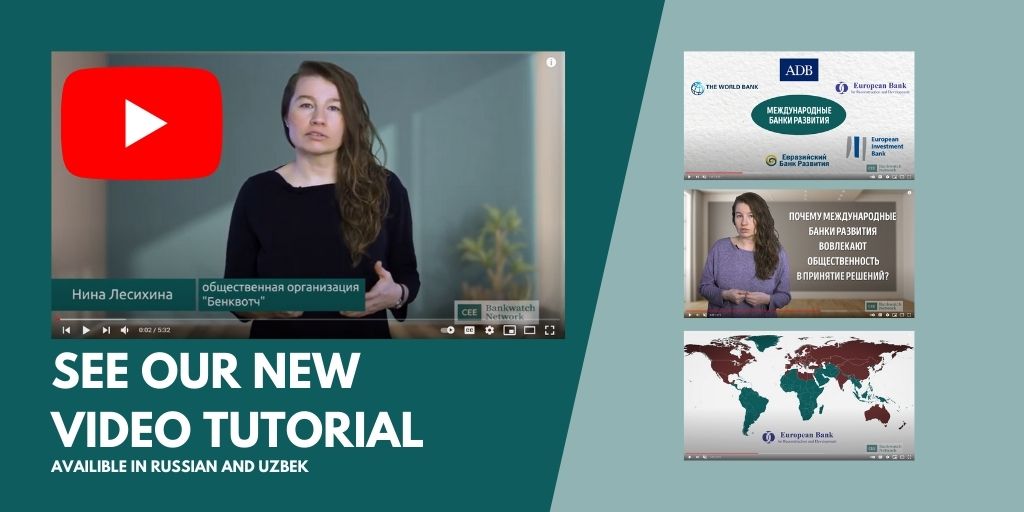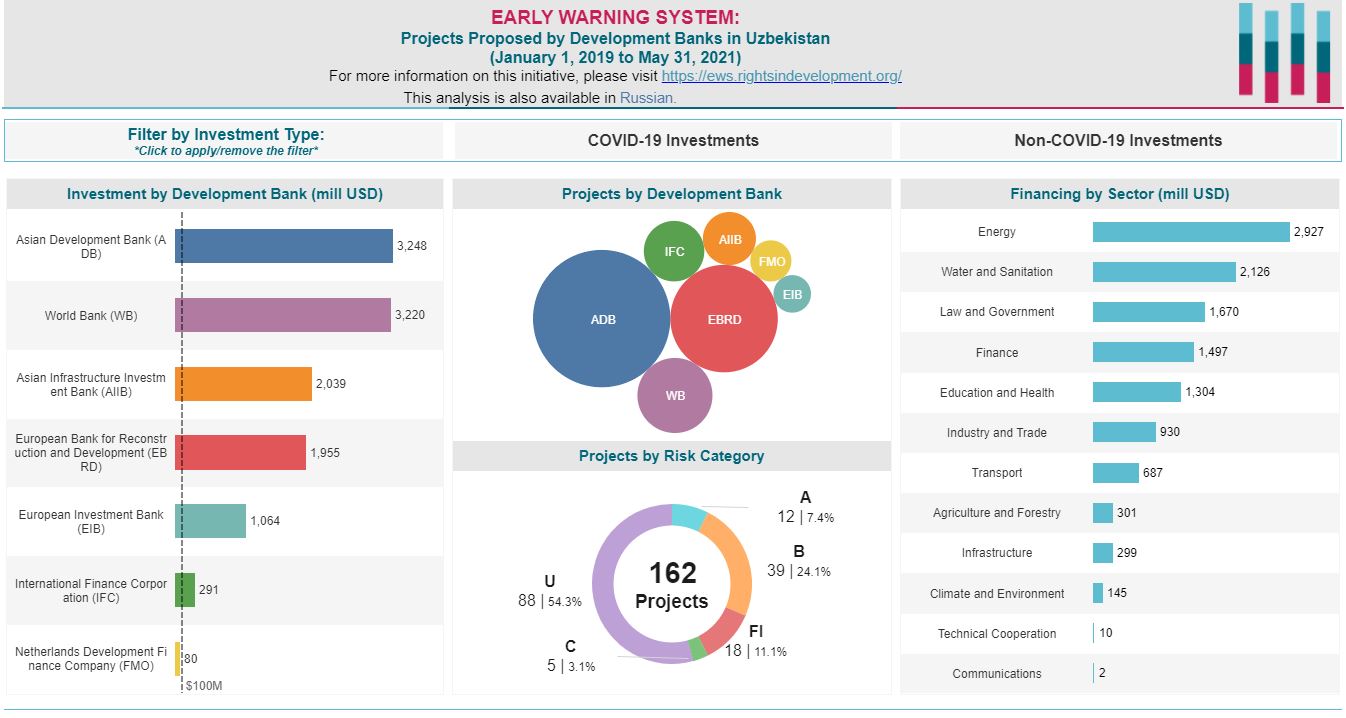Video tutorial in Russian and Uzbek languages is available here.
Hundreds of projects in Uzbekistan have been funded by development banks, with billions of dollars invested in energy, water and sanitation, industry, the financial sector and reforms. Investments at such a scale require scrutiny and public control to ensure they work for the good of people and nature, especially in countries with non-democratic regimes.
CEE Bankwatch Network monitors public finance institutions in Central Asia, and in Uzbekistan in particular. Together with local communities and other NGOs, we expose violations of human rights and social and environmental standards and advocate for the improvement of public investment projects.
For this purpose, we developed a video-tutorial in Russian to inform civil society organisations (CSOs) and activists in Uzbekistan and Central Asia about how they can protect the environment and human rights in the region when they are threatened by development banks. With the support of Uzbek Forum for Human Rights, the video tutorial is also available in Uzbek.
The tutorial covers background information about the European Bank for Reconstruction and Development (EBRD) and European Investment Bank (EIB), including the banks’ accountability mechanisms and the social and environmental obligations they need to follow. It also includes information about Bankwatch’s experience with public monitoring of development banks.
The focus is on the mechanisms for the public to influence the decisions of the banks and their clients in terms of information disclosure, stakeholder engagement, environmental and social impact assessment and mitigation, retaliation prevention, compensation for land acquisition, effective remedy, etc.
We explain how public investments work and how the public needs to be involved in the decision-making process to ensure the compliance of the projects and the companies funded by the banks with environmental, social and human rights standards.
This tutorial serves representatives of civil society organisations, civic activists, individuals and communities who have been or may be affected by projects funded by international development banks, as well as journalists covering investment activities in the region.
Never miss an update
We expose the risks of international public finance and bring critical updates from the ground – straight to your inbox.
Institution: EIB | EBRD
Tags: Central Asia | EBRD | EIB | Uzbekistan | multilateral development banks | video tutorial


